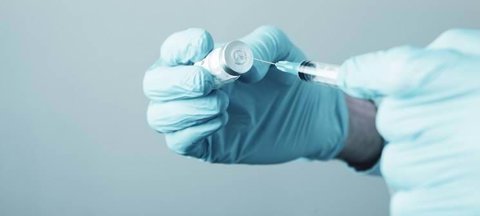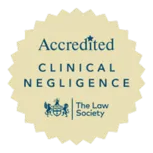
Case Study: Medical Negligence Prolongs Kidney Stone Agony
What should have been a routine procedure for kidney stones turned into an agonising case of medical negligence for one client.


Senior Associate Solicitor, Medical Negligence
After decades of campaigning, the government announced in October 2022 that it will be offering £100,000 in compensation to around 4,000 victims of the infected blood scandal.
Starting in the mid-1970s, the infected blood scandal has been termed the worst treatment disaster in the history of the NHS. 4,689 NHS patients with haemophilia and other bleeding disorders were infected with blood-borne diseases like HIV and hepatitis after being given a new treatment called Factor VIII or IX. Some of those unintentionally infected their partners, as they were unaware of their infected blood at the time.
We now know that a minimum of 2,400 people have died as a result of receiving these treatments in the 1970s and 1980s. It is also estimated that a further 4,000 people are still living with the consequences of being treated with contaminated blood products.
As Medical Negligence Solicitors, we’ve seen first-hand how clinical errors can devastate patients and their families.
We’re pleased that the survivors and partners of those who have died will now receive compensation. But we’re also aware that this doesn’t take into account the parents and children of people who have died as a result of the treatments, and that this can never replace the lives that have been lost
Final recommendations on whether infected blood compensation should be opened up to a wider group of people are expected to be released this year. We’ll be monitoring the situation to see what the outcome of this is.
If you’ve suffered medical negligence, whether it’s at a hospital or with your local GP, our Medical Negligence team could help you get compensation and support. Get in touch for initial advice.




Haemophilia Society UK. (n.d.). The Contaminated Blood Scandal. Retrieved from https://haemophilia.org.uk/public-inquiry/the-infected-blood-inquiry/the-contaminated-blood-scandal/
NHS. (n.d.). Haemophilia. Retrieved from https://www.nhs.uk/conditions/haemophilia/.
Sky News. (n.d.). Infected blood victims to be offered £100,000 in government compensation. Retrieved from https://news.sky.com/story/infected-blood-victims-to-be-offered-100-000-in-government-compensation-12673805
NHS Forth Valley. (n.d.). Blood-Borne Viruses. Retrieved from https://nhsforthvalley.com/health-services/az-of-services/public-health/blood-borne-viruses/
BBC News. (n.d.). Infected blood scandal: Judge-led inquiry into thousands of deaths begins. Retrieved from https://www.bbc.co.uk/news/health-48596605
Hemophilia Federation of America. (n.d.). Emicizumab (Hemlibra). Retrieved from https://www.bleeding.org/bleeding-disorders-a-z/treatment/current-treatments
UK Government. (n.d.). Infected Blood Compensation Framework Study: Consultation on Terms of Reference. Retrieved from https://www.gov.uk/government/news/infected-blood-compensation-framework-study-consultation-on-terms-of-reference
Infected Blood Inquiry. (n.d.). Infected Blood Inquiry. Retrieved from https://www.infectedbloodinquiry.org.uk/
BBC News. (n.d.). Infected blood scandal: NHS chief admits 'shameful' failure. Retrieved from https://www.bbc.co.uk/news/health-64497868
Fill in the form below to get in touch with one of our dedicated team members, or call our team today on: 0800 260 5010